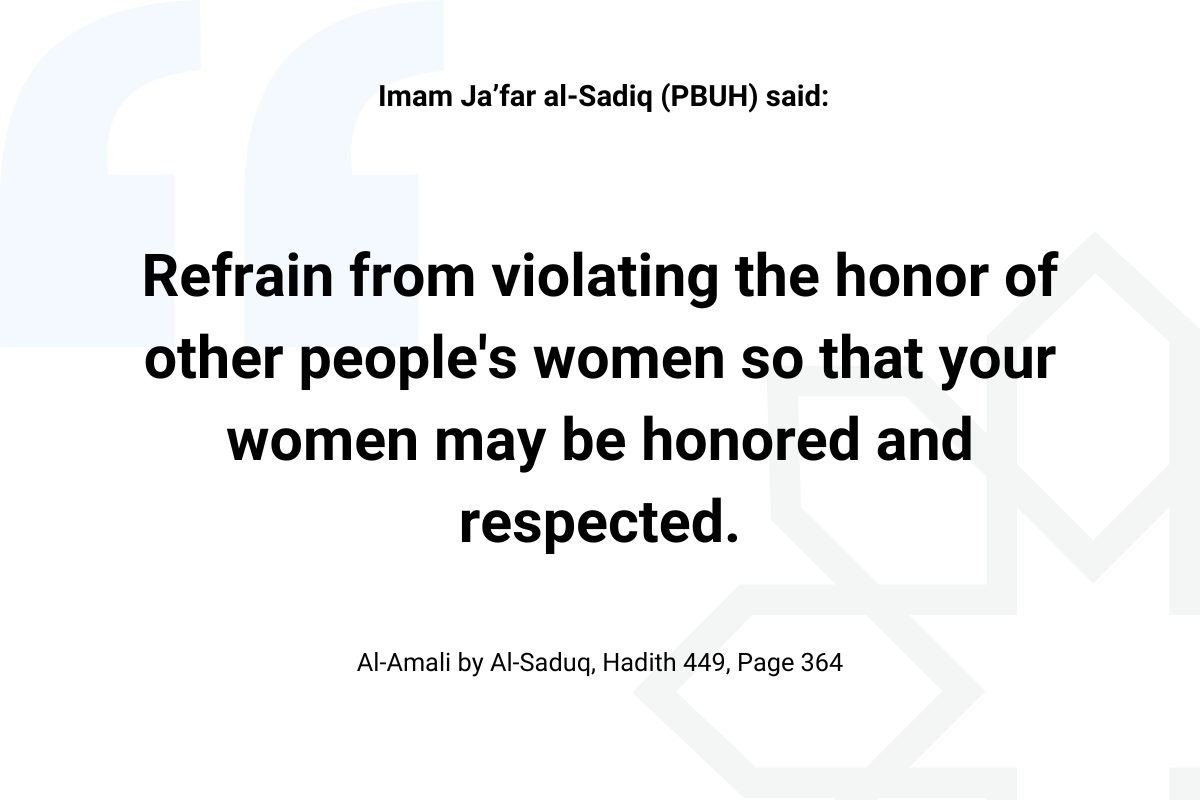Imam Sadiq (AS) said: “Refrain from violating the honor of other people’s women so that your women may be honored and respected.”
Source: Al-Amali by Al-Saduq, Hadith 449, Page 364.
Interpretation of Imam Sadiq hadith about women
This profound hadith from Imam Sadiq (AS) emphasizes the critical importance of maintaining chastity and respect within society. In this statement, Imam Sadiq (AS) explicitly advises that men should practice chastity and refrain from disrespecting or violating the honor of women belonging to others. The underlying principle here is that when men exhibit such honorable behavior towards other people’s women, it fosters a reciprocal environment where their own women will be treated with respect and dignity.
The hadith underscores a fundamental ethical and social principle: the interconnectedness of individual actions and societal norms. It conveys the notion that our actions toward others directly influence how others treat us. This reflects the “Golden Rule” of interpersonal behavior, suggesting that by respecting others, we cultivate a culture of mutual respect and dignity.
From a social perspective, adhering to principles of chastity and mutual respect contributes to creating a safe and wholesome environment for all members of society. When each individual takes moral responsibility in their interactions with others, the cumulative effect is a cohesive, ethical community. This teaching advocates for a societal ethos where the dignity and honor of every individual are preserved and respected.
In today’s context, where interactions among individuals are more expansive due to technological advancements and globalization, the relevance of such ethical guidelines is even more pronounced. Upholding chastity and respect is crucial in preventing misconduct and fostering a culture of honor and decency. Thus, integrating these Islamic teachings into daily life can significantly enhance human relations and contribute to the development of a morally sound and respectful society.
By following this counsel, individuals are reminded of the reciprocal nature of respect and honor, encouraging them to act with integrity and empathy in all their interactions. This hadith serves as a timeless guide for cultivating ethical conduct and fostering an environment where everyone is treated with the dignity they deserve.








